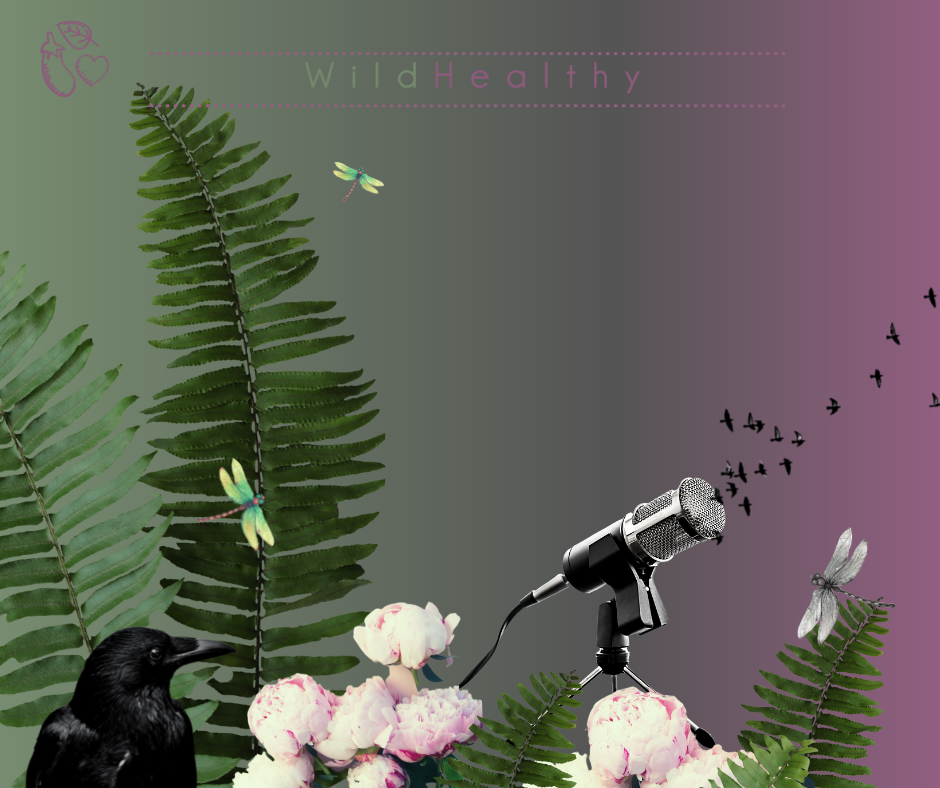
22 Jul Newstalk Interview with Clare McKenna and Carla Bredin
This is a transcript of an interview Carla did with Alive and Kicking host Clare Mc Kenna on Newstalk. Clare invited Carla onto her Health and Wellness show to talk about non-diet nutrition and what exactly is Health at Every Size (R)
Content Warning for Listeners: Numbers used in an anti-fat manner and the word ob*sity used without quotation marks.
7 Min Read
CMcK: I met Nutritionist and intuitive eating counsellor Carla Bredin this week on an online wellness seminar and found that she works with people who are at the end of all this subliminal messaging [relating to dieting] and find themselves with an unhealthy relationship with food and their body. I think her message regarding the non-diet approach is one we need to make mainstream. She is on the line now, hello Carla. So originally you had studied politics and sociology hadn’t you before a Masters in Nutrition and going on to train as an intuitive eating counselor and I think that’s something that’s really interesting about you because obviously you work on an individual level but you also are very conscious of the wider world and everything that feeds into unhealthy relationships with our bodies and food
CB: yeah my sociology and politics degree really changed the lens through which I view the world but in saying that my nutrition education that came after that was very focused on ‘health’ in the form rigid meal plans, advising clients on what to cut out, what to change, that try harder you gotta stay motivated in order to make these changes and you know that very quickly came up short for me and my clinical practice, and why I went into the realm of intuitive eating[…] It is a framework that adopts this non-diet approach so it is a very different way of working with clients in relation to their health and their wellbeing that looks much more at the messaging that they’ve internalised, their belief systems around what health looks like and how to impose that upon themselves and that’s what I was seeing in my clinic. We have this very narrow view of health that comes from a very strong anti fat bias – a strong bias that there is a picture of health we have to try and achieve it if we don’t get there it’s kind of or fault – and then there’s this kind of like cycle of trying failing trying failing and internalising this sense of failure and sense of shame… Marrying the world of that sociological lens – how we view society, how we get our messages and our belief systems and how the culture operates – and then looking all the way down to the individual experience and the difficulty that a lot of people have with that internalised experience
CMcK: and there is a moral code attached to all of this as well isn’t there that if you reach this body ideal that is smaller that is muscular that you are better than the people who couldn’t. That we have this ability within us to get to that utopia and if you’re not getting there you’re failing and then that’s seeping into every meal that you have and we have to eat food every day so you’re facing this guilt over and over again
CB: Right. we’re consuming food 3, 4, 5, 6 times a day every day, every week, every month and if you have a negative relationship with it, you’re constantly confronted with your own personal needs for sustenance versus the messaging that’s coming at you that you’re doing it wrong. And to speak to that piece you mentioned about the moral association with foods, the definition of diet culture is this kind of moral hierarchy of a certain bodies and certain body types being better and more aspirational and so we we convince ourselves that that is something that we need to achieve, that we need to attain. And some people can totally do that – we all know someone, probably right this moment, who’s telling us how hard they’re working on their diet and exercise programme and they’re proud of their results and standing by their method. But often, that is only part of the story. It’s only a small part of the story, and if you talk to them in six months, you talk to them in 18 months, are they still there? Likely not because to get there, to get to that aspirational place, it involves a huge amount of restriction and punishment and punishing behaviours to a body that will go so far with the the punishment that you’re inflicting on it. Then there will be a point where your body goes ‘dya know what, this is not how you were supposed to do this’ so that often happens with ‘plateauing’ where it stops working and so the things that you did are no longer having the same effect and then, if you do lose weight ,it often goes back on. This is called weight cycling and weight cycling is not beneficial for health
CMcK: You’re very much on the side that we can be healthy at every size and I and I know that some people will think now hang on a second you can’t! We know obesity is unhealthy. Can I ask you how that works?
CB: yeah so I, and many practitioners in the non-diet field, subscribe to this philosophy of of Health at Every Size (HAES) and what that philosophy talks about is trying to move away from pathologising body size and appreciate the myriad factors that are involved in health and wellbeing. Something like BMI is a singular tool that is used to classify a body as unhealthy when it goes over a certain number and this is really problematic because health is such a nuanced wide-ranging thing and so using one variable to categorise someone’s health is incredibly reductive. So what we’re trying to promote with this conversation around Health at Every Size is if you de-prioritise body size and you focus on things like movement for the body that you’re in, sleep quality, stress management, nutritional value of foods that you’re eating and the relationship with those foods and your own self, your mental health, your social and community health, there are so many strands involved that you can’t just say OK your BMI is ‘this’ therefore we will label you as ‘this’ and diagnose you with this pathology called ‘obesity’ and we’ll say that you’re unhealthy. You can’t tell a person’s health status by their body size. We need to factor in metabolic markers, what is going on internally, what is going on in the mind, all of these conversations need to be had and it’s not to say that people in certain body sizes don’t experience ill-health it’s saying that just because you’re in a certain body size doesn’t automatically assume ill-health. So we have to expand the conversation to be much more nuanced and much more sensitive to to what the conversation of health actually means
CMcK: and you’re seeing people that are arriving to you that are saying I’m done I’ve done every diet under the sun it doesn’t work I don’t want to do this anymore and yes they have a journey to go on and it doesn’t happen overnight. But when they [eventually] tune in and and pick apart everything that’s going on that may have led to that point they can have a healthy relationship with food that isn’t restricted
CB: Yeah and this is where intuitive eating within nutrition and dietetics works extremely well. For people looking to repair their relationship with food after years if not decades of dieting, of disordered behaviours, of restrictive and excessive behaviours in relation to food and exercise. Intuitive eating is a framework that we work through – and you used the word journey – it is very much an individual journey for every person, like it’s not a step by step system; there are ten principles. Some of them we use with clients and some of them we don’t it really depends on the person. And so we’re looking at things like honouring your hunger and honouring your fullness. If you’ve spent years dieting or having a disordered relationship with food or are in fact in recovery from an eating disorder, what are your body cues telling you? What does hunger feel like in your body – and you know most of us could write the book on how to numb hunger, how to ignore hunger, how to bypass hunger – and similarly with fullness it’s like this fearful experience because of a belief about not wanting to put on weight right? So there’s this kind of linear [mis]understanding of what it all means. Then looking at the rules you have around food how much you’re allowed to eat what types of food you’re allowed to eat what timings etc. We have so many external rules about how we approach food and and the internal impetus is gone for so many people and that is a real challenge to try and get that back. But with time and with tools and with the right support we are seeing that people really can opt out of participation in diet culture, opt out of this trying to shrink themselves, really damaging their mental health in order to pursue a body that is is not attainable for them and instead work with their body to try and find a way to honour the body that they have that they’re going to have for the next you know 40-80 years
If you would like to listen to this interview in full, the link is available here. Scrub to approximately 32:00
Huge thanks to Clare and the team for the invitation to speak on this topic.



Sorry, the comment form is closed at this time.